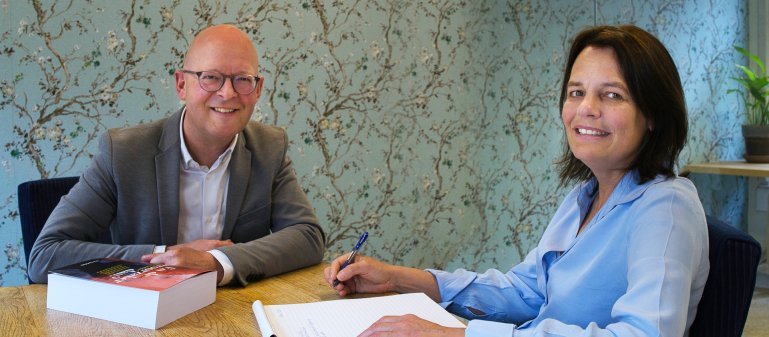Mediation
Many disputes can be resolved in a way that is acceptable to all parties involved. But often those parties are so caught up in the conflict that they cannot see that solution. Our mediators can help parties find that solution. Under the mediator’s guidance the parties commit to resolving the dispute together. This does not have to take very long. The mediator does not take a stand, and is not a judge, but helps parties make their own choices. That usually makes it easier to accept the outcome. Voluntariness and confidentiality form the bases for mediation. Consultations are encouraged, focusing not on formal standpoints but on the parties’ interests. The mediator actively helps make communication and negotiations proceed smoothly between the parties. The outcome is laid down in an enforceable agreement.
General outline of the mediation procedure
Once we receive the application, one of our mediators will contact the parties or their lawyers. We want to make sure that the right parties sit at the table. Should we meet with the parties separately first, what information would help us prepare. In our experience, mediation goes quicker and more effectively if we have some idea of what keeps the parties divided, and of what happened in the past. An assessment of damages, (medical) experts’ reports or letters about the dispute are enough, usually. We also talk about the costs in advance. In general we spend a full day on mediation. This can be at our offices, or another venue. The date is set by mutual agreement. As soon as the mediation starts, any pending proceedings are suspended.
On the day, we start with a plenary session. The session includes an introduction (of the parties, some more details about mediation, conditions, working method, costs) and the signing of the mediation agreement. Then the dispute is mapped out – what happened? What went wrong? What needs to be sorted out? This is followed by a first stocktaking of wishes and possibilities. The parties then usually go to separate rooms, where the mediator speaks with the parties separately. That way the wishes and possibilities can be discussed in greater detail, and the parties can confidentially discuss risks and opportunities. The mediator will commute between the two rooms, negotiating on both parties’ behalves. Finally, the parties meet again for feedback, after which the mediation is finalised.

We have two experienced mediators who specialise in liability law and personal injury law: Mirella Hartman and August Van. Both are members of the Mediator Federation Netherlands.

